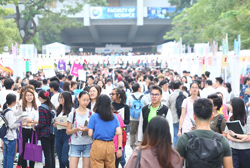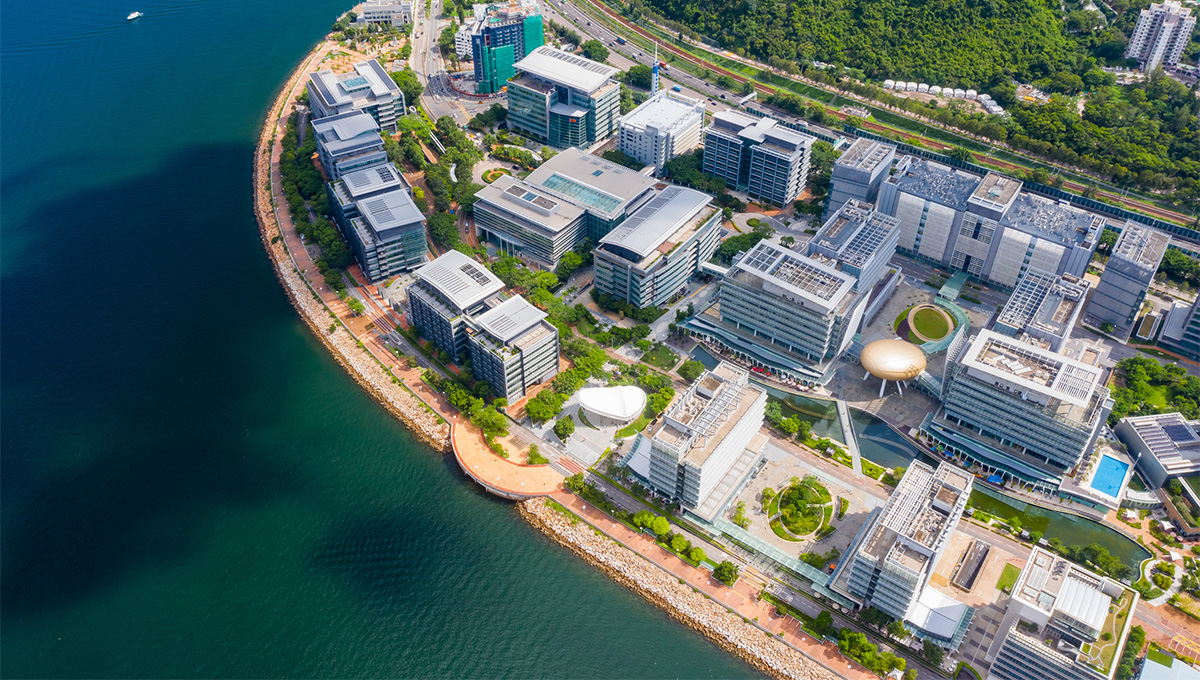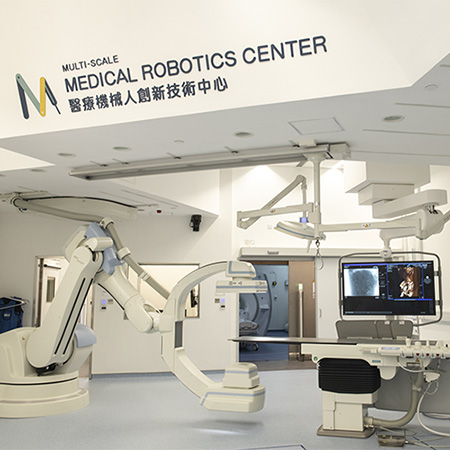
Welcome address to new students

We have long passed the time of asking why Hong Kong needs to recast itself as a global scientific engine room. The question is how.
To effectively transform a service-based economy to one that is driven by innovation and technology (I&T), Hong Kong must increase research and development (R&D) investment, in both public and private domains, to enhance creativity and inventiveness in order to increase its competitiveness. The question is how our goals can be achieved through promoting the collaboration among the government, industry, academic and research sectors.
The ratio of R&D expenditure to gross domestic product (GDP) in Hong Kong has been steadily rising since 2010, with the higher education sector being the major driver, accounting for HK$14 billion out of the city’s total R&D expenditure of HK$26 billion in 2020.
The Government has been pressing ahead with strategies to develop Hong Kong as an I&T powerhouse to answer our nation’s call for technological progress, especially in the Guangdong – Hong Kong – Macau Greater Bay Area (GBA). Multiple initiatives have been put forward to boost R&D investment, nurture and recruit talent, enhance infrastructure and promote research cooperation.
We have started to see results – the Global Innovation Index 2020 pointed to the city making significant progress. Our global ranking in innovation has been rising steadily from 16th in 2017 to 11th in 2020. As part of the Shenzhen-Hong Kong-Guangzhou technology cluster, which took second place in the global ranking of top-performing city clusters, we have also witnessed notable advances in sub-indices including market sophistication (first in the world) and tertiary education (ninth in the world under the category of human capital and research).
But with R&D expenditure accounting for just shy of 1% of the city’s GDP in 2020, Hong Kong still has to gallop through its research and innovation agenda in order to achieve the 1.5% target for the year 2022 articulated in the 2017 Policy Address.
Studies have pointed to the critical contribution of R&D expenditure to territorial competitiveness, which in turn stimulates economic growth. In member countries of the Organisation for Economic Co-operation and Development (OECD), research activities have led to considerable gains in economic productivity, which significantly outweigh the costs of investing in research. In UK, for example, The Russell Group, the alliance of leading research intensive universities that includes Oxford and Cambridge, delivers an average return of £9 to the country’s economy for every £1 of public research funding they secure.
The recent resounding success of Hong Kong universities at the International Exhibition of Inventions of Geneva 2022 serves as a timely reminder for our city to further exploit the strength of our higher education system to bolster economic development. Hong Kong achieved a record-breaking number of 204 awards in the largest global exhibition devoted exclusively to inventions.

Hong Kong’s universities occupy highly respectable positions in global university rankings, and are making a significant impact on I&T capacity building. They have a proven track record in converting research outputs to commercialised products and fostering industry and cross-border research collaborations that benefit the economy. A good number of successful start-ups have their roots in the academic world. We can all be proud of SenseTime, a local high-tech unicorn born from the work of professors at The Chinese University of Hong Kong, which has become one of the world’s largest artificial intelligence companies. This is an impressive success story, but we need more of them.
Hong Kong can be bold in building our research infrastructure. With government support, local universities have been favoured by world-renowned institutions and research facilities to develop collaborative R&D programmes and projects. Connecting with the expanding network of university-based InnoHK Centres, National State Key Labs, and joint laboratories with mainland and overseas partners, tertiary institutions have become the main driving force to create and translate knowledge that can contribute significantly to the economy.
In addition, we should find our niche in next generation technologies. Areas highly worthy of a boost in investment include R&D in quantum computing, an area of great potential, satellite and remote sensing hardware crucial for studying our environment, biosafety research facilities for tackling emerging infectious diseases, and developing and supporting an ecosystem that connects biomedical and pharmaceutical industries.
Statistics have shown that the rate of return on investment in basic science can be three times that of applied R&D, and most basic research is carried out by professor-supervised postgraduate students at universities. Expansion of postgraduate resourcing for local universities, thereby constructing the pipeline of future talent crucial to building up our research capacity, can be a powerful game changer.
Universities in Hong Kong, the breeding ground of innovation, have nurtured researchers who have proudly ascended to the heights of the academic arena with world leading research outcomes that create far-reaching impact and transform our economy. Let’s remember their importance as we think about the settings that will prime our city for even stronger success in the decades to come.